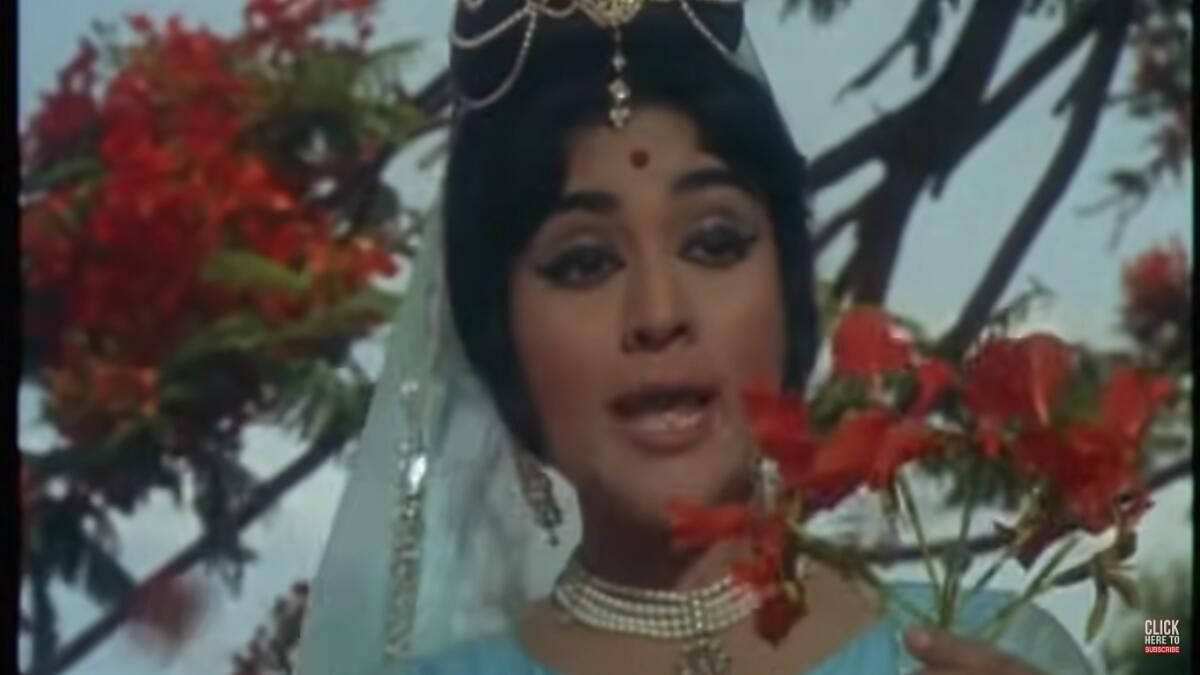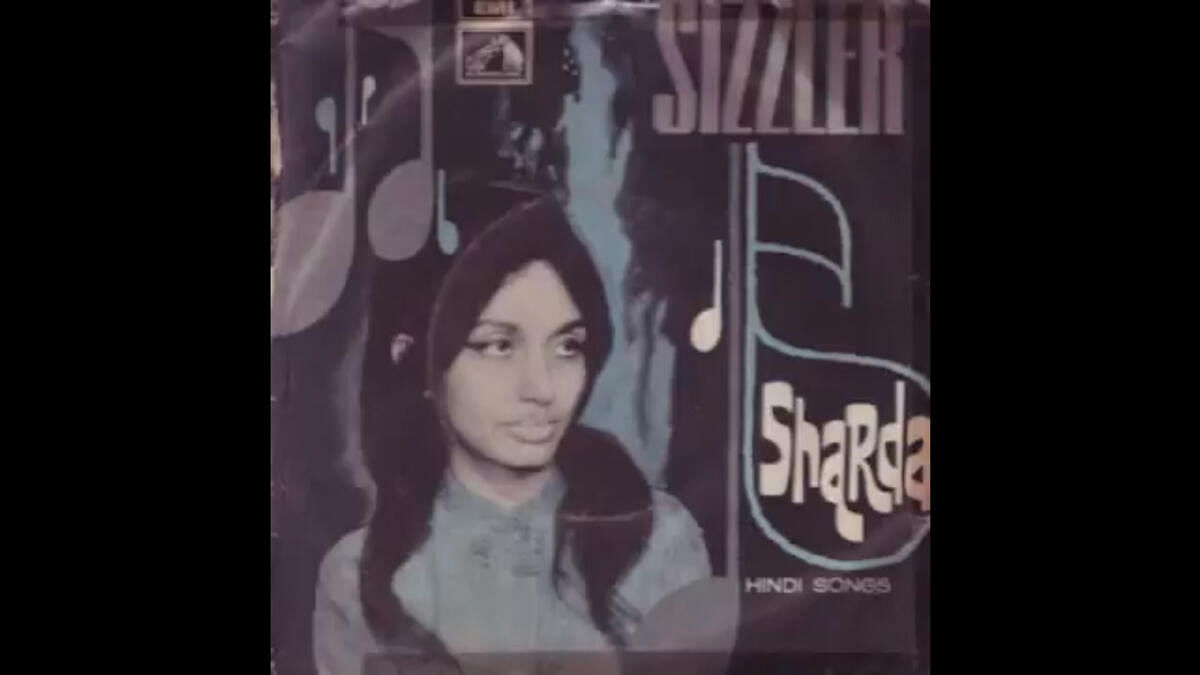

On June 14, Sharda, the voice that defined unconventional lilt, passed on. What was remarkable was that this artiste, who has an ardent group of staunch fans, just like a Talat Mahmood, was thought to be just a “hit” singer by most of them.
And few know that the lady who belted out many timeless hits was not just a playback singer with Shankar-Jaikishan. Not only did she sing four songs for Usha Khanna, the title-song for Ravi’s ‘Sanjh Ki Bela’ and other melodies for smaller composers like N. Dutta, Dattaram and Iqbal Qureshi, but she also sang in Marathi, Gujarati, Telugu, Bengali and Punjabi.
In the 1970s, this trained-in-Carnatic classical artiste who loved Hindustani classical, Hindi film and even Western music turned to composing songs and writing lyrics. Her two pioneering Hindi pop albums, ‘Geet Manohari’ (1970) and ‘Sizzler’ (1971) — that genre was virtually unknown in India then — were noticed and Sharda got offers to compose music for several films, like ‘Maa Bahen Aur Biwi’ (1972), ‘Garibi Hatao’ (1973) and ‘Kshitij’ (1973), ‘Mandir Masjid’ (1977), ‘Maila Aanchal’ (1981).
While her composition for Mohammed Rafi, ‘Accha hi hua dil toot gaya’ (‘Maa Bahen Aur Biwi’) led in popularity, she also created songs for Mukesh, Kishore Kumar, Manna Dey, Mahendra Kapoor, Yesudas, Suresh Wadkar, Shabbir Kumar, Suman Kalyanpur and Anuradha Paudwal in about a decade.
In the 1980s, past her peak as a singer because Shankar was also losing ground (Jaikishan was no more), Sharda even wrote film lyrics for him, calling herself ‘Singhar’ in ‘Garam Khoon’ (1980) and ‘Chorni’ (1982). These songs were rendered by Lata Mangeshkar, Mohammed Rafi, Asha Bhosle, Kishore Kumar and Sulakshana Pandit.
In her last film as singer, Shankar’s ‘Kanch Ki Deewar’ (1986), Sharda changed her name to ‘Sharadrima’ and sang four songs. She was also creatively involved in Shankar’s incomplete 1993 film, ‘Waqt Ka Sikandar’, as revealed by Shabbir Kumar. In this film, Sharda, in all probability, composed the song, ‘Love me more’, rendered by her daughter Sudha Madeira, while the introductory shlok was sung by Sharda herself.
But Sharda was not yet satisfied creatively. With her skills overflowing, she discovered the poetry of Mirza Ghalib and promptly composed and sang the album, ‘Andaz-E-Bayan Aur’ in 2007. She also began practicing and teaching “voice culture” to aspiring singers.
“This is something vital both for singers and those in other careers. Your voice makes a major impression. As a singer, it also involves learning good posture, breathing techniques, cultivating the throw of your voice and the control of its power,” she had said.
The Tamilian who always wanted to do Hindi music — her all-time favourite song was ‘Yahan badla wafa ka’ sung by Mohammed Rafi and Noorjehan in ‘Jugnu’ (1947) — was not a Shankar-Jaikishan discovery, as believed. Raj Kapoor heard Sharda sing at a party in Tehran (where she was then residing with her husband) and suggested that she come down to Mumbai. A voice test was conducted and Kapoor took her to Shankar-Jaikishan. ‘Titli udi’ (from the film ‘Suraj’, 1966) was her first recorded song and ironically became such a cult hit that Sharda never again got a song to match its craze.
But despite an array of hits for Shankar–Jaikishan and singing for top heroines from Vyjayanthimala to Smita Patil, Sharda never entered the big league. As she put it, “My tally of 200 songs would have been far greater had I not faced a lot of manipulations from vested interests. My songs would be removed from films, like with Raj-saab’s ‘Mera Naam Joker’, or blanked out from the radio. I realised that I would have to face this kind of politics no matter how well I sang or how popular my songs would become, so I decided never to approach any other composers,” she had told me calmly.